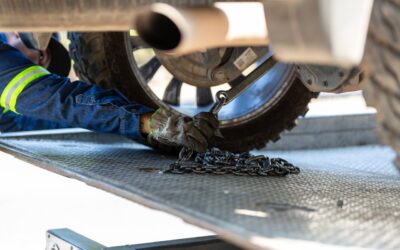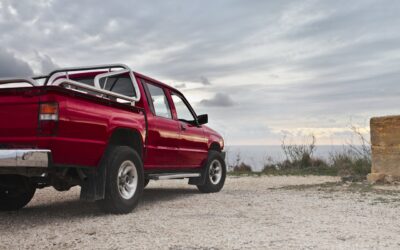Car Towing Tips
Moving to Another State? Here are some Car Towing Tips for Towing Your Vehicle Long Distances!
If you are moving a long distance for a job or a new start in another state, you’re probably not planning on driving each of your vehicles to your new location. If you’ve decided to tow your commuter car behind your truck or you want to safely transport your classic car without risking any damage to it, read on for some long-distance towing tips.
Make Sure You Have the Right Trailer for the Job
The trailer you use to tow your vehicle must be able to handle the weight of the vehicle. If you’re renting a trailer, ask the representative helping you about the weight ratings, and be familiar with the GVWR of the vehicle you plan to tow. That way you can be sure that your vehicle doesn’t exceed the trailer’s weight limit.
You can choose to tow your vehicle on a tow dolly or inside of an enclosed trailer or car hauler. An enclosed trailer can be pricier to rent, but it offers the best protection. Your vehicle will be sheltered from bad weather and flying road debris, and all four tires will be off the ground, which prevents unnecessary wear and tear.
If you decide to use a tow dolly instead, understand that only the back tires will be in contact with the road for the entire trip. This means that, if you have a rear-wheel, 4-wheel or all-wheel drive vehicle, you’ll need to drop the drive shaft. That will allow the rear tires to spin while the vehicle is being towed.
Make Sure You Load the Vehicle Properly
The vehicle should always be loaded front-first onto the tow dolly or into the car hauler. The heaviest part of the car (the engine) should be closest to the vehicle that is towing it. Otherwise, the trailer and vehicle are at a higher risk of whipping back and forth on the road.
Also, don’t try to pack any straggling boxes or furniture items into the vehicle you’re towing. Doing so might put the vehicle’s weight over the limit the trailer or dolly can handle. Extra items might also cause an uneven distribution of weight, increasing the chances that the vehicle will whip or sway while being towed.
Lastly, don’t ever allow people or pets to ride in the vehicle being towed. In addition to the weight-related risks mentioned above, the person riding in the vehicle would have no control over it if something were to go wrong. Pets can also overheat or get too cold in the car being towed.
Practice Driving With the Vehicle in Tow
If you don’t have much experience towing vehicles, be sure to get some practice in before you hit the highway. Start by practicing turning, backing up and pulling forward in a big, empty parking lot. Then head to a quiet street so you can get used to making wider turns so your trailer doesn’t end up on the curb.
Notice how braking differs, too, when you are towing a vehicle behind you. Always leave extra space between you and any vehicle in front of you, and give yourself extra time to slow down.
You should also adjust your mirrors to encompass a wider view so you can see all around the vehicle you’re towing or the car hauler.
Remember that learning how to navigate a vehicle that is towing a trailer or another vehicle on a dolly takes patience! However, if you would rather hop on a plane to your new hometown, you can always hire a professional to tow your vehicles for you. Here at Dean’s Wrecker Service, our certified drivers are experienced in long-distance towing for cars, trucks, RVs, busses and boats. Contact us today for more information.
Recent Posts
Categories
- Auto Towing Raleigh (23)
- Car Maintenance Tips (2)
- Crane Service (1)
- Dean's Wrecker Service (4)
- Equipment Relocation (2)
- Heavy Duty Towing (13)
- Raleigh Highways (3)







